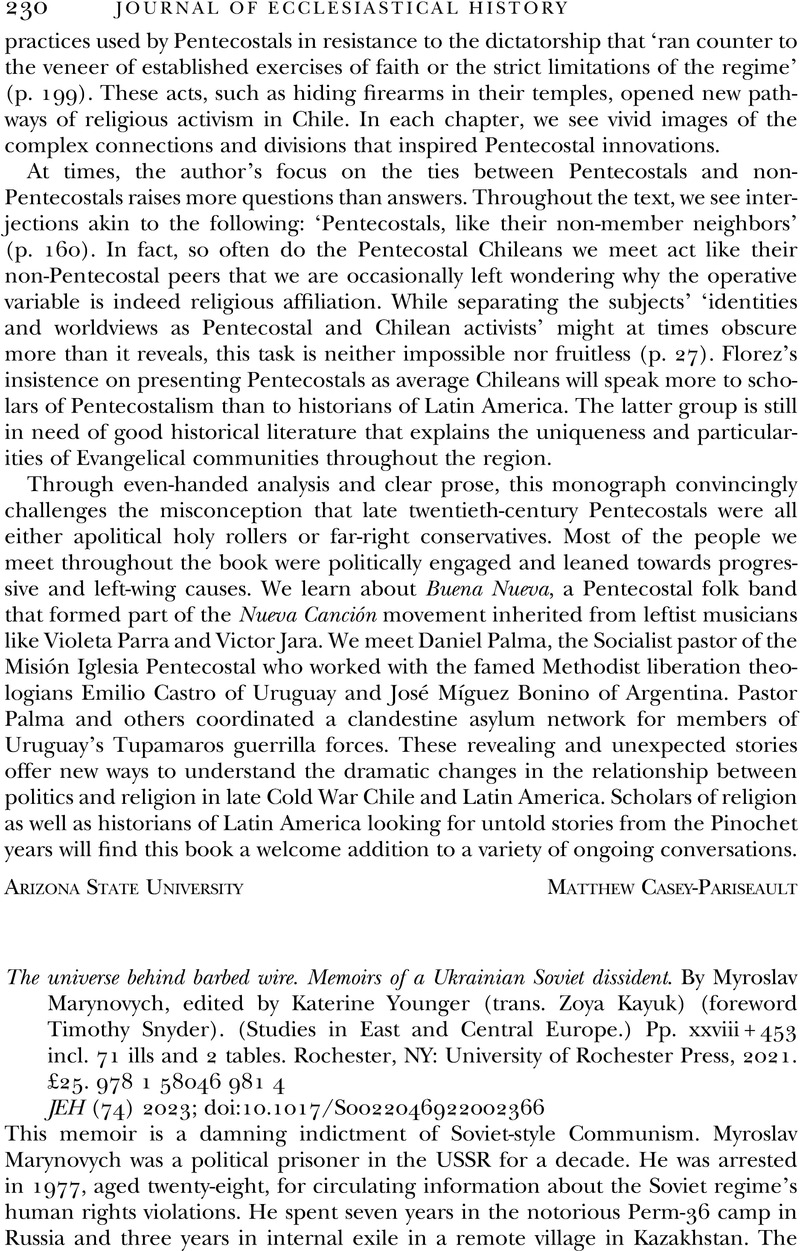No CrossRef data available.
Article contents
The universe behind barbed wire. Memoirs of a Ukrainian Soviet dissident. By Myroslav Marynovych, edited by Katerine Younger (trans. Zoya Kayuk) (foreword Timothy Snyder). (Studies in East and Central Europe.) Pp. xxviii + 453 incl. 71 ills and 2 tables. Rochester, NY: University of Rochester Press, 2021. £25. 978 1 58046 981 4
Review products
The universe behind barbed wire. Memoirs of a Ukrainian Soviet dissident. By Myroslav Marynovych, edited by Katerine Younger (trans. Zoya Kayuk) (foreword Timothy Snyder). (Studies in East and Central Europe.) Pp. xxviii + 453 incl. 71 ills and 2 tables. Rochester, NY: University of Rochester Press, 2021. £25. 978 1 58046 981 4
Published online by Cambridge University Press: 29 December 2022
Abstract
An abstract is not available for this content so a preview has been provided. Please use the Get access link above for information on how to access this content.

- Type
- Reviews
- Information
- Copyright
- Copyright © Cambridge University Press 2022



